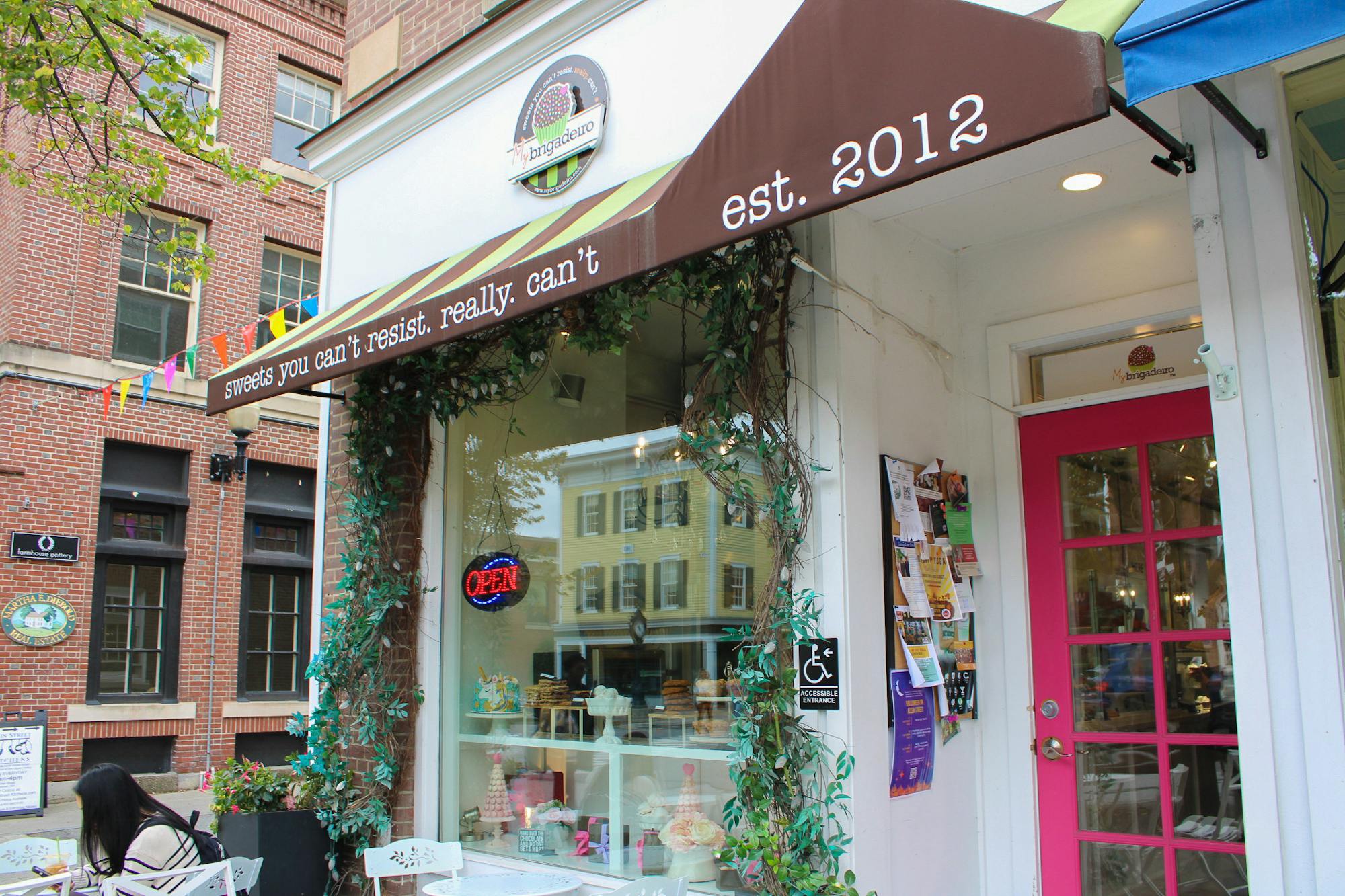This week, Mirror sought a better understanding of what’s happening behind the register, exploring how local businesses have been dealing with the various challenges they face.
Jarett Berke T’17, owner of Lou’s Restaurant and Bakery, said the lack of affordable housing for workers in the Upper Valley area has affected his business by exacerbating the labor shortage.
“Housing costs have just gone up and up, which makes it hard for working class people to afford a house here,” Berke said. “I’m not talking about low income, I’m talking about everyday people; the people that do the jobs that make this world run. It is very difficult to be able to live here on that salary.”
Berke stated that students living off campus in Hanover housing are contributing to the labor shortage in town.
“A lot of the houses [students live in] are single family homes, where there should be working class families,” Berke said. “Students should be living in dorms, not single family homes.”
Upper Valley residents have long been impacted by the housing crisis, and President Sian Leah Beilock outlined her proposed housing changes for both students and workers in her inauguration speech on Sept. 22.
“We commit to introducing at least 1,000 new beds for undergraduate, graduate, staff and faculty housing within the next decade and to breaking ground on the first of these projects for each population — with undergrad dorms situated closest to the heart of campus — within the next 24 months,” Beilock said. “Of course, the housing crisis we face isn’t limited to our campus. It pervades our entire Upper Valley community. So, we are doubling our investment in the Upper Valley Loan Fund, an effort that helps create affordable workforce housing.”
Allie Levy ’11, owner of Still North Books & Bar, said she has continuously had to navigate staffing shortages.
“I feel like just when I think I’m kind of getting a hold on it and getting fully staffed, something will change, and then all of a sudden, it is, ‘Oh, my God, we can’t find staff,’” she said.
Levy explained that she loves working with Dartmouth students because she has found them to be personable, reliable and hard-working, and that they are practically built into her business model, with “up to 50%” of her team being made up of students at one time. However, she noted that the students often leave Hanover, and therefore stop working, for up to two months at a time due to the quarter system on which Dartmouth operates.
Klara Meyer ’24, who worked at My Brigadeiro for three months this past summer, stated that the Dartmouth Student Union, which has raised wages in the last two years to $16.25 an hour, has changed the way businesses in Hanover pay their employees.
“At cafes around here, wages can be $17 or $18 an hour, yet when I interviewed elsewhere [in the Upper Valley], the wage was $11 an hour for a 10-hour shift,” she said. “I could make $17 working for Dartmouth or even in Hanover-related cafes because they have to pay that much because students are making that much elsewhere.”
Meyer added that she would like to see the College take more action to directly support local businesses.
“Dartmouth could incorporate those businesses into the campus space or the dining dollar space,” Meyer said. “Obviously, we can walk two feet down Main Street, but I think it would be different when it feels more accessible.”
Lexy Piton ’24, who has also worked at a local business in town, stated that she thinks local businesses would benefit from a loan system or grant money from the College. Dartmouth could either place a local business in the middle of Baker-Berry Library or give a small store the money to survive through the economic situation we are in.
“At the end of the day, it’s our students going to the small independent businesses,” Piton said. “President Beilock is talking about improving campus life, and a large part of that is community life.”
Berke mentioned that the best way for students to support businesses is to spend money locally. During New Student Orientation this year, there was a scavenger hunt that involved activities downtown to show students what is available to them. Berke explained that more activities like this would do wonders for Hanover businesses.
Another central question is the responsibility of the student body to support local businesses, given Hanover’s unique orientation as a “college town.
“As individuals, we are temporary elements of the town’s economy,” Meyer said. “But Dartmouth students are here forever. As a student body across every generation, we do have the power and access to work for, support, and or buy things from these businesses.”
Levy echoed this sentiment.
“When you come back for your fifth year, 10th year, 20th reunion, you’ll want to see a version of Hanover that’s either similar to or better than the Hanover that you left,” she said.




